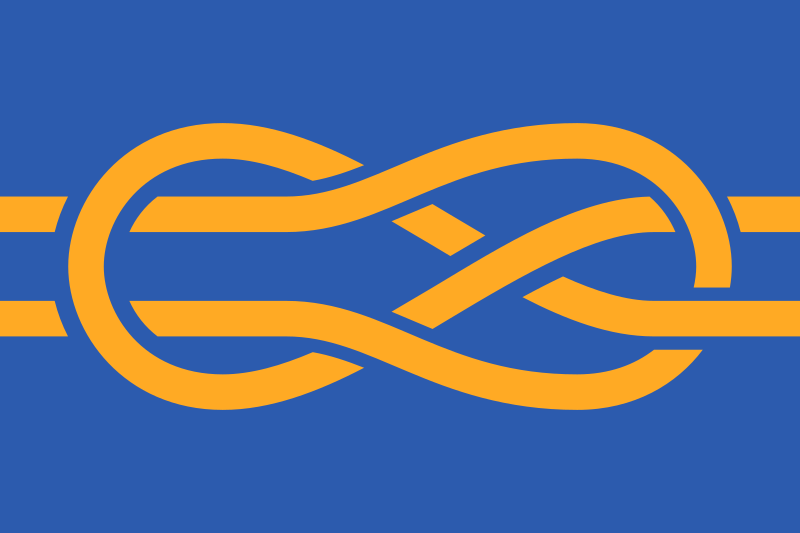

It’s got tree yellow stars.
@pauldrye@spacey.space : Unbuilt crewed space projects, phantom islands, alternate history, Muppets, Atomic Age design, weird-looking galaxies, temporary moons of Earth, languages, cartography, the Ediacaran biota, old cutaway diagrams. Canadian with malice aforethought. Baggage Books on DriveThruRPG.


It’s got tree yellow stars.
deleted by creator
distant sound of Italians exploding


Oh, good lord. Have you met my 82-year old father?
It’s often under its Italian name, passata. I’m Canadian too and it’s usually sold in glass bottles on the same shelves as spaghetti sauce. It’s from Unico for the one I currently have in my fridge, but there’s a few brands.
Whoever the writer thinks should be faster, so as to serve the needs of the story being told.


The EU already has a land border in the Americas. French Guiana is part of the union and it touches Brazil and Suriname. So the gate is already open to work it from the south up instead of the north down.
I read somewhere – great source, I know – that the existing rule is that the country has to be in Europe, though, not that it has a border. Otherwise Malta, Ireland, and Cyprus would not qualify, and the UK too back when they were in.
Oddly enough, the Canadian/Danish border is a questionable one for this purpose anyway – Hans Island (where the border is) is part of Greenland and Greenland is not in the EU. It left in 1985 and is now one of the “Overseas countries and territories” that have special rights in relation to the EU but are not actually in it.
No, they do – it’s just not a codified constitution like almost all other countries have.
Proponents of the idea believe that a constitution that has evolved bit by bit over a long period of time and across a bunch of different charters and unwritten agreements/customs is stronger that one that’s done all in one shot. You’ll see the unflattering metaphor that “a tree is stronger than a weed”, which seems a bit unfair but it’s reasonable point – if not one that’s beyond argument or anything.
Commonwealth countries are politically conservative, small “c” and not big “C”, as the general attitude is “if it ain’t broke don’t fix it, even if it’s objectively kind of stupid”. There was a good reason for every one of the decisions that led to today, don’t &^%$ with it, just in case.
The key word in “constitutional monarchy” is “constitutional”, not “monarchy”. The monarch must follow the parliament’s requests, and not doing so is unconstitutional. Parliament is sovereign, at least in all of the countries that derive their monarchy from the UK’s.
Outside of the UK there wouldn’t be a fight anyway: in all the Commonwealth countries (except the ones that have since gone fully republican), the monarch has a representative called “the governor general” who is selected by the Parliament and recommended to the monarch at which point see above. The monarch has to take the advice of who is to be their governor-general. Issues basically never get to the monarch for them to mess anything up. The loyal-to-his-country deputy gets first crack at everything the monarch does in theory and has no reason to go against Parliament. If somehow the g-g or the king did speak out, it’d be a legal mess but everyone would ignore them. Practically we’d either get ourselves a new monarch or just say to hell with it and become a republic.
To answer your specific question then, yes, it’s pro forma. The monarch’s role is to be the embodiment of all legislative, judicial, and executive power, in a fairly close analog to what the American Constitution is. But the Constitution can’t exercise any of those powers and the monarch can’t either. It’s just a historical oddity that they can walk and talk, unlike a piece of paper.
Commander Keen is probably the one that I liked the most that is also well known.
My personal favorite was Bass Class, which is weird because I’ve zero interest in real-life fishing, then or now.


Though the split happened because the Soviets thought they should be master of all Communist countries and the Chinese had different ideas on the topic.
This sounds like something they’d name an Italian character in an old Bugs Bunny cartoon.


!Traveller@ttrpg.network is about the venerable Traveller TTRPG, and is new in the last couple of weeks. It’s seeing some activity every few days right now so it might not take much more to get it off the ground.
Yes, but it doesn’t matter enough. The square-cube law means that the mass being supported goes up faster than the area of the layer doing the supporting does. So each additional brick on the bottom still ends up carrying more weight as the pyramid gets taller.
Depends on the compressive strength of the material. Sooner or later the weight of the pyramid above the base exceeds the base’s ability to support it. Considering that a mountain is basically a stone pyramid, Everest has to be in the neighbourhood of how tall you could go – call it 10-12 kilometers high. Other materials would do better.


It’s the only one in English unless you allow things like “The absolute value of -20”.


There’s a part of Canada that’s south of Crescent City, California.
Ps-ps-ps-ps-ps-ychiatric Help